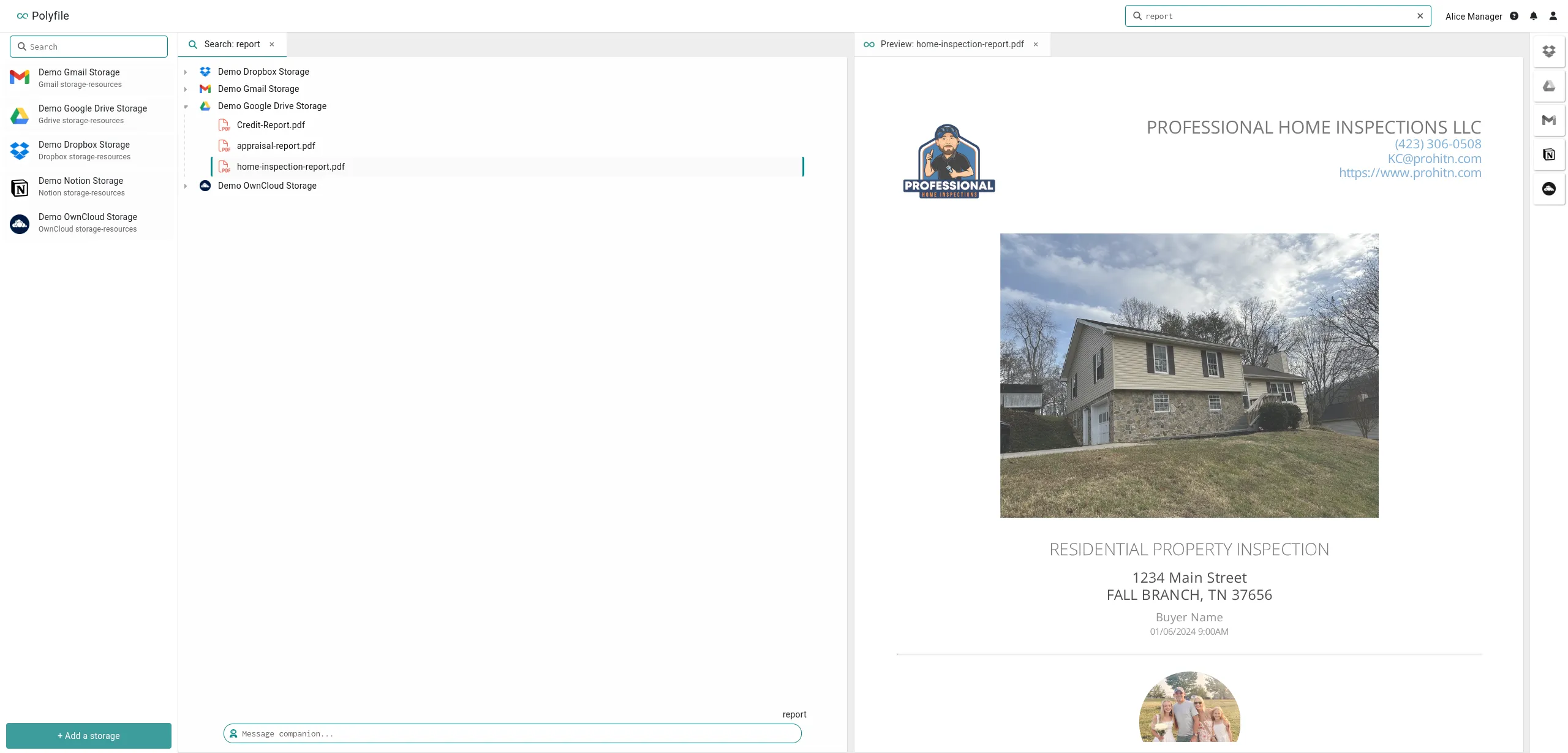From 6 Searches to 1: How Unified Search Saves Hours Daily
Your boss asks about that client proposal with the specific pricing model from two months ago. You know it exists. You know you discussed it. But where?
Was it in the Slack thread? The email chain? Somewhere buried in Google Drive? Maybe in Confluence? Or tucked into a Figma comment on the mockups? Before you know it, you’ve burned 45 minutes retracing steps across half a dozen tools, following dead ends, and piecing together fragments of the conversation.
This isn’t just an occasional annoyance - it’s the daily reality of modern knowledge work. McKinsey research shows employees spend nearly 20% of their week searching for internal information and another 28% managing email. That’s close to half the workweek lost not to doing the work itself, but to chasing context.
We’ve created digital filing cabinets everywhere, but lost the ability to find anything quickly.
The Real Problem: Information Lives in Silos
Modern teams scatter knowledge across countless tools - email for clients, Slack for chats, Drive for files, Notion for projects, Confluence for docs, GitHub for code, Figma for design. Each one has its own search, its own structure, its own rules.
The information is there, but finding it means remembering where you had the conversation in the first place. Instead of moving work forward, people waste hours on digital scavenger hunts.
Unified Search: One Query Across Everything
Polyfile connects to your existing platforms and searches across all your files simultaneously. Type one query, get results from Gmail attachments, Dropbox files, Google Drive documents, Notion pages, Confluence pages - wherever your actual files and documents live.
The search understands context. Looking for “Q3 budget analysis”? It finds the Excel file in Google Drive, the PDF attachment from Gmail, and the Confluence page where you documented final decisions.
Set Up Cross-Platform Search in Minutes
Connect Your Platforms Add the platforms your team actually uses. Polyfile supports Gmail attachments, Google Drive, Dropbox, Notion pages, Confluence pages, GitHub files, Figma designs, Monday documents, ClickUp attachments, Basecamp files, OneDrive, Outlook attachments, and more. Each connection uses OAuth security - the same authorization method the platforms use for all third-party integrations.
Enable Search Indexing Mark specific storages as “indexable” from the context menu. This keeps your search index focused on relevant content without bloating it with everything from every platform.
Search Everything at Once Type your query once. Get results from all connected platforms, ranked by relevance. See file types, sources, and modification dates. Preview content without switching platforms.

Refine and Focus Results Too many results? Add filters by platform, file type, or date range. Looking for just the documents? Need only recent items? Set a time boundary. The search adapts to show exactly what you need.
Save Search Results as Project Workspaces
Here’s where unified search becomes genuinely useful: transform search results into organized workspaces.
Found everything related to “client onboarding process”? Save all those results as a new virtual storage called “Client Onboarding Resources.” All the document files, email attachments, and knowledge base pages get organized in one place, maintaining links to their original platforms.
Example: Product Launch Search Search for “mobile app launch Q1” across all indexed storages. Results include:
- Technical specification pages from Confluence
- Design mockup files from Figma
- Email attachment with stakeholder feedback
- Budget spreadsheet from Google Drive
- User research pages from Notion
Save these results as “Mobile App Q1 Launch” virtual storage. Now everything related to that launch lives in one organized workspace, even though files stay in their original platforms.
Real Search Scenarios
Legal Discovery Process Law firm needs all documents about specific contract negotiations. Search finds email attachments, document revisions in Google Drive, meeting note files in Notion, and contract drafts across platforms. Save results as “Contract Negotiation - Smith Corp” for easy reference during case preparation.
Customer Support Investigation Support team investigates recurring customer issue. Search finds bug report files in GitHub, customer email attachments, troubleshooting documentation in Confluence, and screen recording files in Google Drive. Save as “Customer Issue #2847” workspace for complete context.
Quarterly Business Review Executive team prepares board presentation. Search finds financial report spreadsheets, team performance document files from Monday, client feedback email attachments, competitive analysis pages from Notion, and previous presentation files from Google Drive. Save as “Q3 Board Materials” for future reference.
Common Questions
How is this different from Google Workspace search or Microsoft 365 search? Those search within their own ecosystems. If your team uses Notion pages, GitHub files, and Figma designs alongside Google tools, you still need multiple searches. Polyfile searches across all your file platforms simultaneously, regardless of vendor.
Do you index all my content? We only index storages you specifically mark as “indexable” from the storage context menu. This keeps search focused on relevant content without bloating the index. Indexed content is processed only for search purposes and is encrypted in transit and at rest. OAuth security means you control what we can access.
What happens when I save search results as a virtual storage? We create an organized workspace with links to all the files and documents from your search. Original files stay in their platforms with original permissions. The virtual storage just provides unified organization.
Can team members collaborate in saved search workspaces? Yes. Virtual storages created from search results work like any other Polyfile workspace. Add team members, leave comments, create tasks, and maintain project context while files stay in their original locations.
How current are the search results? Search indexes update continuously as new files appear in indexed storages. New email attachments, document updates, and page changes appear in search results within minutes.
What if a platform goes offline or I disconnect it? Search results from offline platforms won’t appear in new searches, but previously saved virtual storages maintain their organization. Reconnect the platform and search results resume appearing.
Time Recovery for Real Teams
Consider the productivity impact. Average manager spends 2.6 hours daily searching for information across platforms. Marketing teams lose 3 hours weekly hunting for campaign asset files. Development teams spend entire afternoons looking for technical documents scattered across platforms.
Client services scenario: Customer reports urgent issue on Friday afternoon. Instead of searching Gmail attachments, Confluence docs, and GitHub files separately, one search finds all related documentation, previous solution files, and relevant technical specs. Issue resolved in 30 minutes instead of 3 hours.
Unified search transforms information scavenger hunts into instant answers. Your scattered digital filing cabinets become a single, searchable knowledge base that actually finds what you need.


